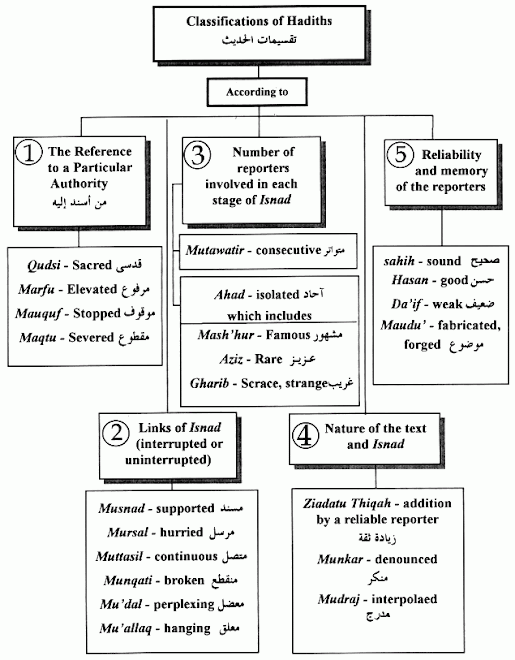 Abu Ja'far Muhammad bin Ya'qub bin Ishaq al-Kulayni al-Razi (864-941 C.E.) was a ninth/tenth century Twelver Shi'i religious scholar and muhaddith, a scholar and specialist in hadith (plural: ahadith), reports of the Prophet Muhammad's sayings and actions as recorded by transmitters from Companions of the Prophet. For Twelver Shi'is, ahadith may also be sayings and actions of the 14 "Infallibles," individuals whom they believe to be inerrant. These 14 include the 12 Imams, descendants of the Prophet through his cousin and son-in-law, 'Ali bin Abi Talib, and, more specifically, 'Ali's son Husayn, the third Imam.
Abu Ja'far Muhammad bin Ya'qub bin Ishaq al-Kulayni al-Razi (864-941 C.E.) was a ninth/tenth century Twelver Shi'i religious scholar and muhaddith, a scholar and specialist in hadith (plural: ahadith), reports of the Prophet Muhammad's sayings and actions as recorded by transmitters from Companions of the Prophet. For Twelver Shi'is, ahadith may also be sayings and actions of the 14 "Infallibles," individuals whom they believe to be inerrant. These 14 include the 12 Imams, descendants of the Prophet through his cousin and son-in-law, 'Ali bin Abi Talib, and, more specifically, 'Ali's son Husayn, the third Imam.Al-Kulayni, as he is usually known, compiled one of the four collections of ahadith (al-kutub al-arb'ah) considered canonical by Twelver Shi'is, Kitab al-Kafi ("Sufficient Book"). The two hadith below come from the one part of the collection, Furu' al-Kafi (approximately, "Sufficient Branches"). Both address the issue of jihad ("struggle"), which has numerous varieties in Sunni and Shi'i jurisprudence, including the now well-known military jihads, offensive and defensive. Honorific formulas repeated after the name of scholars, Infallibles, and the Prophet are omitted.
Update: Thanks to Alexander, for a key question (see Comments): The Arabic term being translated in the two hadith below (which are not my own) is عصبية or variants thereof, which can also be rendered as "bigotry" or "blind, absolute tribal loyalty" (right or wrong).
__________________________________
Usul al-Kafi (Sufficient Foundations), Hadith #2542, Chapter 119 (Hadith #2)
" 'Ali bin Ibrahim narrated from his father from Ibn Abu 'Umayr from Hisham bin Salim, and Durust bin Abu Mansur from Abu 'Abdullah (sixth Imam, Ja'far al-Sadiq): 'The Messenger of God has said, 'Whoever practices racial discrimination or it is practiced for him has removed the collar of belief from his neck.''"
____________________________
Usul al-Kafi (Sufficient Foundations), Hadith #2547, Chapter 119 (Hadith #7)
" 'Ali bin Ibrahim narrated from his father and 'Ali bin Muhammad al-Qasani from al-Qasim bin Muhammad from al-Minqari from 'Abd al-Razzaq from Mu'ammar from al-Zuhri who said: 'Once, 'Ali bin Husayn (fourth Imam) was asked about racist feelings. He said, 'The racist feeling that is a sin is the one that makes a person consider the evil-doers of his own people to be better than the virtuous individuals of another people. A man's loving his own people is not racism, but it is a sin to help one's own people to commit injustice."





4 comments:
Would you mind also providing the Arabic, for those of us who don't have access to the original texts? I was just wondering what word(s) you're translating as 'racism' - عنصورية ?
I meant to (and forgot) to clarify that the first post was based on my translations of the 2 hadith on jihad, but the second post is not. Rather, it is taken from a dual-language version of Usul al-Kafi published by The Islamic Seminary (INCNY).
Unfortunately, due to time constraints and/or lack of the original Arabic texts, I won't always be able to post the Arabic. I will sometimes draw from translations, which I will try and ensure are from reputable sources, that do not include the original language. This isn't ideal, but I've chosen this way to enable me to (try) and maintain a third blog.
Nonetheless, I have checked the hadith here. The word(s) the translators rendered as racism is عصبية. I suppose "bigotry" or "blind/absolute tribal loyalty" would be other possibilities.
From what I've heard from some of the well-known scholars of Ahl-us-Sunnah-wal-Jamaa'ah of the athari creed in America is that the word 'asabiyya' translates roughly into tribalism/nationalism, but can be also translated as racism.
Thanks for the information. Yes, I've seen it translated mostly as "(hyper) tribalism." In modern Arabic I know "qawmiyya" is often used for "nationalism," e.g. "qawmiyya 'arabiyya".
Post a Comment